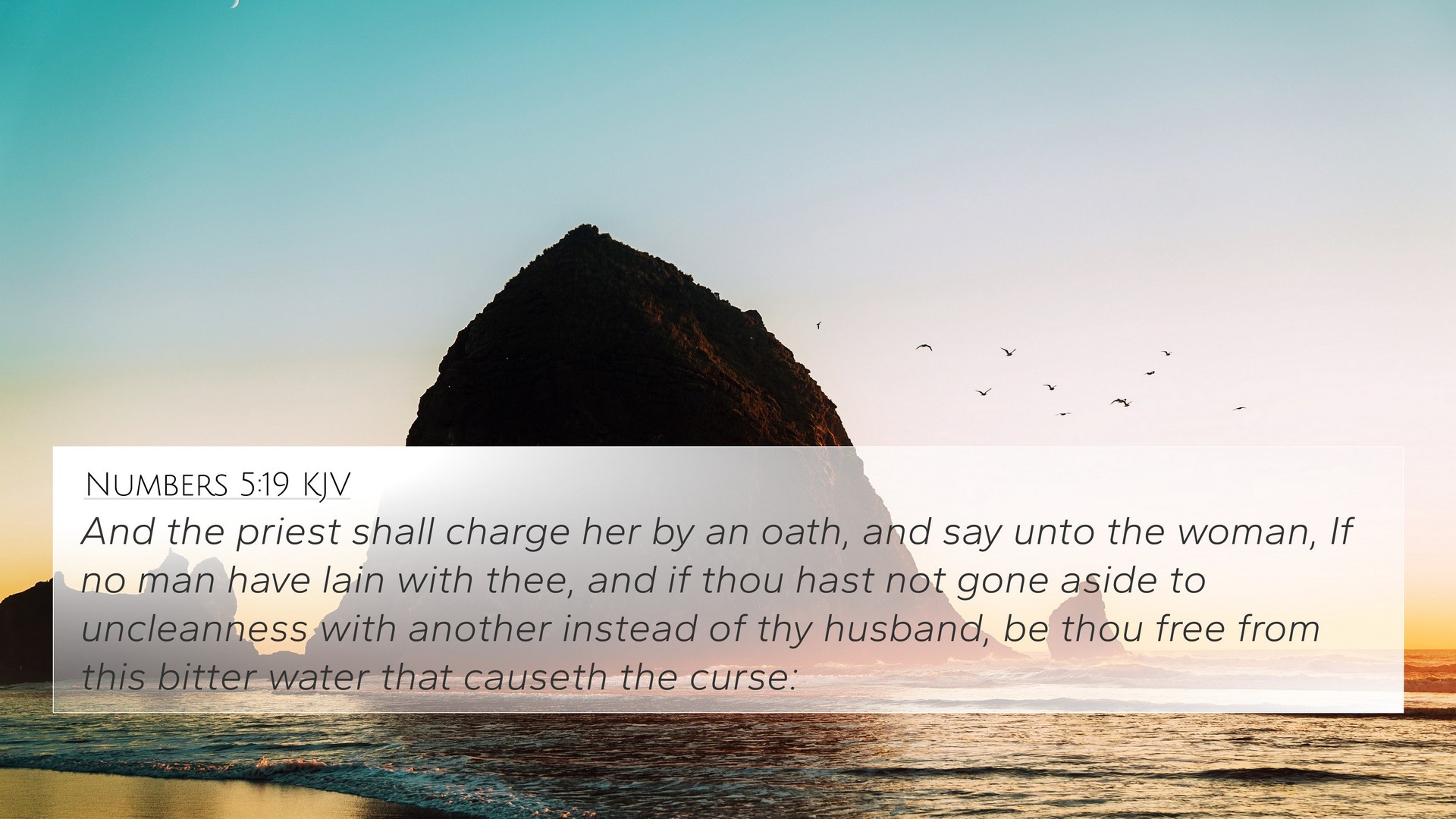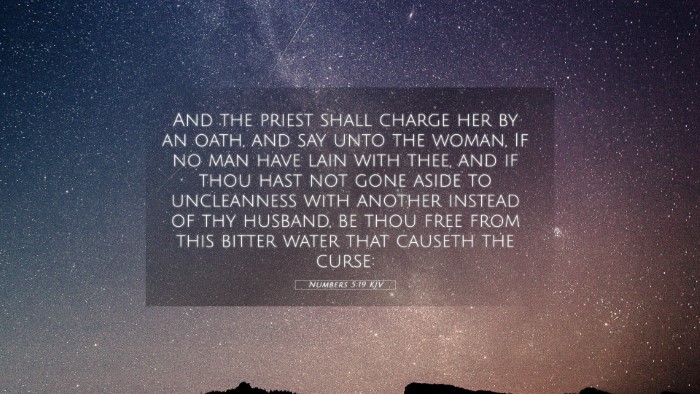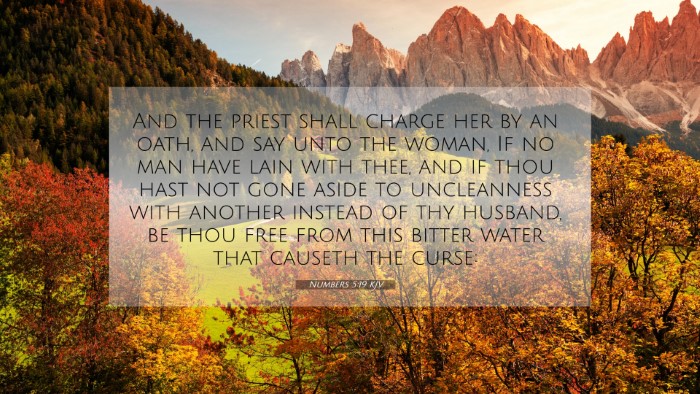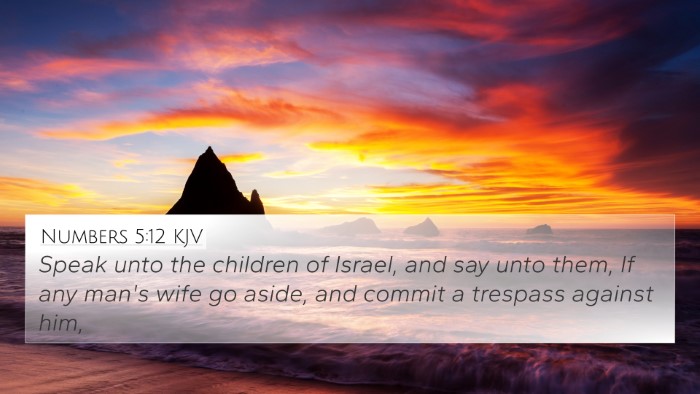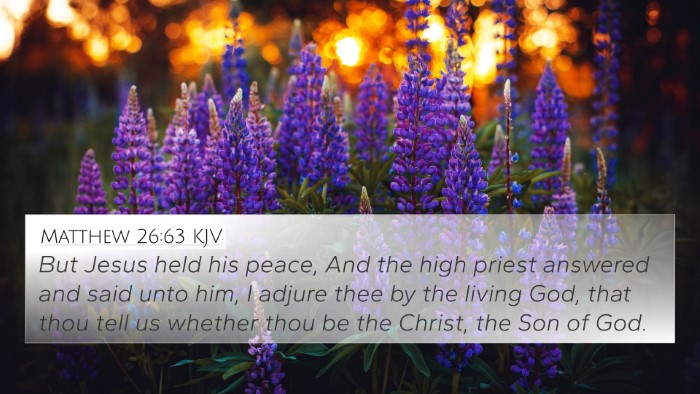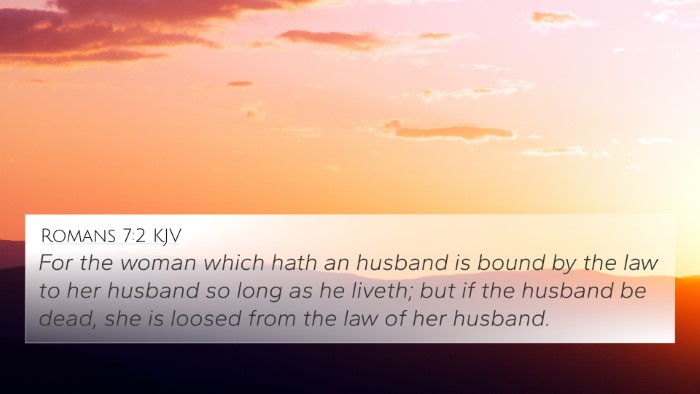Understanding Numbers 5:19
Verse Context: Numbers 5:19 states, "And the priest shall put her under oath and say to her, 'If no man has lain with you, and if you have not gone astray to uncleanness while under your husband's authority, be free from this bitter water that brings a curse; but if you have gone astray while under your husband's authority and if you have defiled yourself and a man other than your husband has lain with you...'
This verse is part of the ancient practice described in the Law of Moses concerning a wife suspected of infidelity. It illustrates serious implications of marital fidelity and the community consequences of adultery.
Commentary Insights
- Matthew Henry: Henry emphasizes the severity of the oath, highlighting that it serves as a divine test of truthfulness. The bitter water represents both physical and spiritual testing. It is indicative of God's deeper knowledge and justice concerning human actions.
- Albert Barnes: Barnes discusses the ceremonial aspects of the law, noting how the ritual is a mechanism for societal order. He reflects on the importance of trust within the marriage bond and the role of the priest in mediating between God and the people.
- Adam Clarke: Clarke elaborates on the psychological ramifications of the practice, indicating that the process was designed not only to reveal truth but also to instill a fear of wrongdoing among the people, thereby enhancing societal morality.
Cross-References and Thematic Connections
This verse is interconnected with several other Biblical texts that expound on themes of fidelity, honesty, and consequences for actions:
- Exodus 20:14: "You shall not commit adultery." This commandment underpins the moral reasoning in Numbers 5:19.
- Leviticus 20:10: "If a man commits adultery with the wife of his neighbor, both the adulterer and the adulteress shall surely be put to death." This places an emphasis on the seriousness of marital infidelity.
- Proverbs 6:32: "He who commits adultery lacks sense; he who does it destroys himself." This highlights the destructive nature of adultery, resonating with the consequences mentioned in Numbers 5:19.
- Malachi 2:16: "For the man who does not love his wife but divorces her, says the Lord, the God of Israel, covers his garment with violence." This passage emphasizes the sanctity and seriousness of marriage.
- Matthew 5:27-28: Jesus expands on the commandment regarding adultery, underscoring that lustful intent is akin to the act itself.
- 1 Corinthians 6:18: "Flee from sexual immorality..." This New Testament admonition continues the theme of sexual purity.
- John 8:3-11: The account of the woman caught in adultery reflects the values of mercy within justice, a balance discussed in the procedure outlined in Numbers 5.
The Role of Oaths and Divine Justice
In Numbers 5:19, the use of oaths underscores the seriousness of one’s words and actions. Within ancient Israelite society, oaths were binding and invoked divine scrutiny. This establishes a framework within which moral behavior is maintained through a community response to individual actions. The bitter water symbolizes both potential judgment and the purification process.
Conclusion
Numbers 5:19 serves a dual purpose within the scripture: it outlines a specific law regarding suspected marital infidelity while also emphasizing broader themes of honesty, fidelity, and divine oversight. As evident in the cross-references, the principle of moral conduct permeates through both the Old and New Testaments, inviting readers to reflect on their own commitments and the importance of integrity in relationships.
